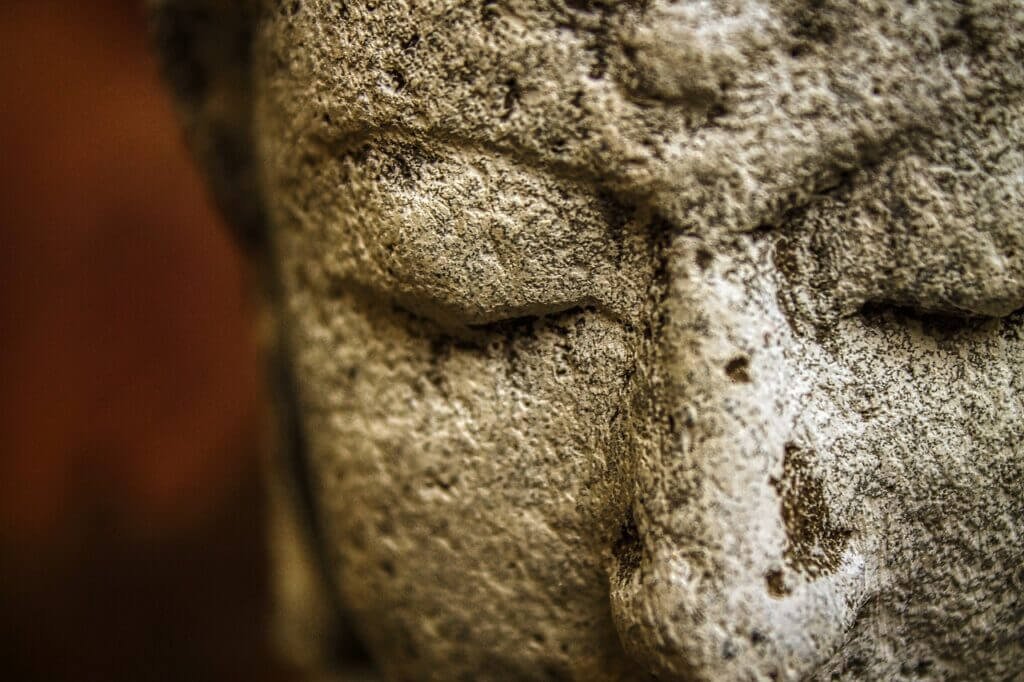In today’s fast-paced world filled with constant distractions, finding inner peace and maintaining a healthy mind and body is more essential than ever. This article explores the significant role that mindfulness and meditation play in achieving overall well-being. By embracing mindfulness, we become more aware of our thoughts, feelings, and sensations, allowing us to live in the present moment and foster a deep sense of contentment. Additionally, meditation helps us cultivate a relaxed state of mind, reducing stress, anxiety, and even physical ailments. Discover how these practices can transform your life and unlock a path towards a healthier, more balanced existence.

The Definition of Mindfulness and Meditation
Understanding Mindfulness
Mindfulness is the practice of intentionally bringing one’s attention to the present moment without judgment. It involves being fully aware of one’s thoughts, feelings, bodily sensations, and the surrounding environment. By cultivating mindfulness, you can develop a greater sense of self-awareness and a deeper appreciation for the present moment.
Exploring Meditation
Meditation is a technique used to train the mind and achieve a state of mental clarity and emotional calmness. It involves focusing one’s attention and eliminating the stream of thoughts that may be running through the mind. Through regular meditation practice, you can enhance your overall well-being and achieve a sense of inner peace.
Improving Mental Health
Reducing Stress and Anxiety
One of the primary benefits of mindfulness and meditation is their ability to reduce stress and anxiety. By practicing mindfulness, you can learn to identify and manage your stress triggers, allowing you to respond more effectively to challenging situations. Similarly, meditation techniques such as deep breathing and guided imagery can help calm the mind and release tension, promoting a sense of calm and tranquility.
Managing Depression
Mindfulness and meditation have also been found to be effective in managing symptoms of depression. By practicing mindfulness, individuals can develop a more positive outlook, detach from negative thought patterns, and cultivate a greater sense of self-compassion. Meditation techniques like loving-kindness meditation can foster feelings of inner peace and boost mood, helping to alleviate symptoms of depression.
Enhancing Emotional Well-being
Mindfulness and meditation can significantly enhance emotional well-being. By being fully present in the moment, you can better understand and regulate your emotions. Regular meditation practice can also lead to a greater acceptance of both positive and negative emotions, allowing you to experience them without judgment. This increased emotional awareness can improve your overall mental health and contribute to a greater sense of happiness and contentment.

Physical Health Benefits
Boosting the Immune System
Research suggests that mindfulness and meditation can boost the immune system. By reducing stress and promoting relaxation, these practices can enhance the body’s ability to fight off infections and illnesses. Moreover, mindfulness has been shown to increase the production of antibodies, strengthen immune cells, and improve overall immune function, leading to improved physical health.
Reducing Blood Pressure
Mindfulness and meditation have been proven effective in reducing blood pressure. By calming the mind and body, these practices can help to dilate blood vessels and improve blood flow. As a result, individuals who regularly engage in mindfulness and meditation may experience lower blood pressure levels, reducing the risk of heart disease and other cardiovascular conditions.
Improving Sleep Quality
If you struggle with sleep issues, incorporating mindfulness and meditation into your routine may help. By practicing mindfulness, individuals can calm the mind and reduce racing thoughts that often interfere with falling asleep. Meditation techniques, such as body scan meditation, can also promote physical relaxation and release tension, leading to a more restful sleep. Improved sleep quality can have numerous positive effects on overall health, including increased energy levels and improved cognitive function.
Enhancing Cognitive Function
Improving Attention and Focus
Mindfulness and meditation have been shown to improve attention and focus. By training the mind to stay present and focus on a specific object or task, individuals can better concentrate and avoid distractions. This enhanced ability to stay focused can improve productivity, learning, and problem-solving skills, ultimately leading to improved cognitive function.
Enhancing Memory and Creativity
Regular mindfulness and meditation practice can also enhance memory and creativity. By reducing stress and promoting relaxation, these practices create an optimal environment for memory processing and consolidation. Additionally, mindfulness has been shown to increase working memory capacity, allowing individuals to hold and manipulate information more effectively. Furthermore, meditation techniques like open monitoring meditation can foster a “flow” state, enhancing creativity and promoting innovative thinking.

Promoting Self-awareness and Self-compassion
Cultivating Self-awareness
Mindfulness and meditation can facilitate the development of self-awareness. By practicing mindfulness, individuals can observe their thoughts, emotions, and behavioral patterns without judgment. This increased self-awareness allows for better understanding of oneself, leading to personal growth and self-improvement. Through self-awareness, individuals can identify and change negative habits, enabling them to lead a more fulfilling and purposeful life.
Developing Self-compassion
Self-compassion is a key aspect of mental well-being, and mindfulness and meditation can help cultivate it. By practicing mindfulness, individuals can learn to treat themselves with kindness, understanding, and empathy. Meditation techniques like loving-kindness meditation specifically focus on developing compassion towards oneself and others. By nurturing self-compassion, individuals can improve their self-esteem, resilience, and overall emotional well-being.
Building Resilience and Coping Skills
Developing Resilience
Mindfulness and meditation can play a significant role in building resilience. By practicing mindfulness, individuals learn to observe and accept their experiences, even during challenging times. This non-judgmental awareness helps build emotional resilience, allowing individuals to bounce back more quickly from adversity. Additionally, meditation techniques like breath awareness meditation can provide a sense of calm and stability, enhancing one’s ability to cope with difficult situations.
Strengthening Coping Mechanisms
Mindfulness and meditation also strengthen coping mechanisms. By practicing mindfulness, individuals develop the ability to observe their thoughts and emotions objectively, rather than becoming overwhelmed by them. This skill allows for more effective problem-solving and decision-making, thus improving individuals’ ability to cope with daily stressors and challenges. Moreover, meditation techniques like body scan meditation can promote relaxation and alleviate physical tension, further enhancing individuals’ coping abilities.
Fostering Healthy Relationships
Improving Communication
Mindfulness and meditation can significantly enhance communication skills, leading to healthier relationships. By practicing mindful listening, individuals can improve their ability to truly hear and understand others, fostering empathy and deepening connections. Moreover, mindfulness cultivates a non-judgmental attitude, allowing for more open and effective communication. By being fully present in conversations, individuals can respond more genuinely and authentically, leading to more meaningful and satisfying relationships.
Increasing Empathy and Compassion
Mindfulness and meditation also promote empathy and compassion. By practicing mindfulness, individuals can develop a deeper understanding of others’ experiences and emotions, leading to greater empathy. Furthermore, meditation techniques like loving-kindness meditation specifically focus on cultivating compassion towards oneself and others. By nurturing empathy and compassion, individuals can form stronger connections with others and engage in more caring and supportive relationships.
Integrating Mindfulness and Meditation Into Daily Life
Incorporating Mindful Eating
Integrating mindfulness into eating habits can have a profound impact on overall well-being. By practicing mindful eating, individuals can fully experience the tastes, textures, and smells of their food, leading to a more enjoyable and nourishing meal. Additionally, mindfulness can help individuals become aware of their hunger and fullness cues, promoting a healthier relationship with food and preventing overeating. By incorporating mindful eating into daily life, individuals can develop a healthier and more mindful approach to nourishing their bodies.
Mindful Movement Practices
Engaging in mindful movement practices, such as yoga or tai chi, can be an effective way to incorporate mindfulness and meditation into daily life. These practices involve paying attention to the breath, bodily sensations, and the present moment while engaging in gentle movements. By practicing mindful movement, individuals can cultivate a sense of physical and mental well-being, improving coordination, flexibility, and overall physical health. Moreover, these practices offer an opportunity for individuals to connect with their bodies and prioritize self-care in their daily routines.
Different Meditation Techniques
Focused Attention Meditation
Focused attention meditation involves directing one’s attention to a specific object or sensation, such as the breath or a chosen mantra. By repeatedly bringing the attention back to the chosen focal point whenever the mind wanders, individuals can develop increased concentration and focus. This technique enhances the ability to stay present and cultivates a greater sense of mental clarity and calmness.
Loving-Kindness Meditation
Loving-kindness meditation focuses on developing feelings of love, compassion, and kindness towards oneself and others. It typically involves silently reciting well-wishes for oneself, loved ones, neutral individuals, and even perceived adversaries. Through regular practice, individuals can cultivate a greater sense of empathy, compassion, and connectedness, leading to improved relationships and a greater sense of well-being.
Body Scan Meditation
Body scan meditation involves systematically bringing attention to different parts of the body, noting any sensations or tensions that may arise. By practicing body scan meditation, individuals can develop a greater sense of body awareness, release physical tension, and promote relaxation. This technique also helps cultivate a sense of acceptance and non-judgment towards the body, fostering a greater appreciation for physical well-being.
Overcoming Common Challenges
Maintaining Consistency
One common challenge when it comes to mindfulness and meditation is maintaining consistency in practice. To overcome this, it can be helpful to establish a regular routine and designate a specific time and place for practice. Setting realistic goals and starting with shorter meditation sessions can also make it more manageable. Additionally, finding a form of meditation that resonates with you and brings enjoyment can increase motivation and make it easier to maintain consistency.
Dealing with Restlessness and Distractions
Restlessness and distractions can often arise during meditation, making it challenging to stay focused. When faced with restlessness, it can be helpful to acknowledge and accept these feelings without judgment. Instead of trying to force the mind to become still, gently bring the attention back to the chosen focal point. If distractions arise, gently label them as “thinking” and return the attention to the present moment. With time and practice, it becomes easier to navigate through restlessness and distractions and find a sense of calm and stillness.


